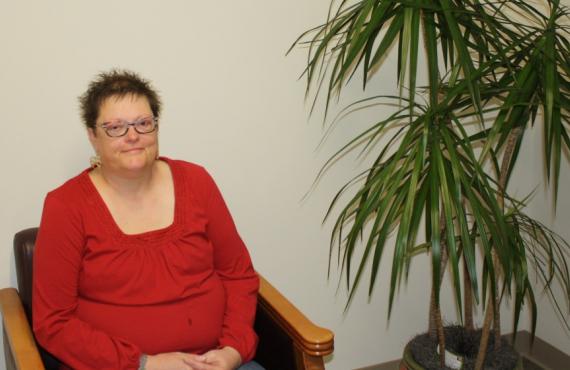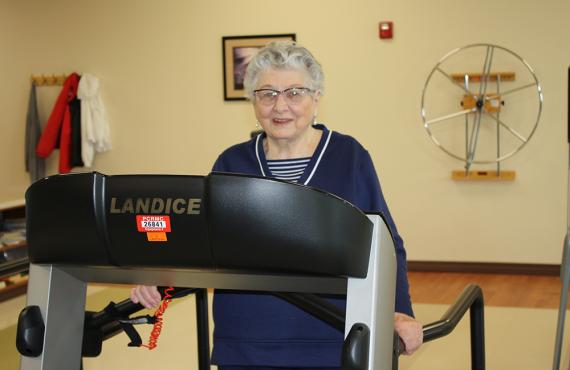Published on January 9, 2024

Read Time: 3 Minutes
Three Things to Know
- Setting achievable goals, like quitting soda gradually instead of cutting all sugar out of your diet at once, increases your chances of success.
- Talk to your healthcare provider for personalized goals and use apps to support your journey.
- Be proactive: Schedule annual checkups and age-appropriate screenings.
By Abby Blanc, FNP-C
Phelps Health
Every January, if you’re like me, you may be thinking of healthy ways to kick off the new year.
A healthy lifestyle is your biggest key to preventing all kinds of diseases, from heart disease to kidney disease to diabetes and more.
Whether you want to lose weight, eat healthier or exercise more, setting realistic goals is important when making resolutions for developing healthy habits.
For instance, one of my resolutions is giving up soda. I know that it's going to take me a long time to stop drinking soda.
If I say, “I'm going to completely cut sugar out of my diet starting tomorrow,” I’m more likely to fail. Instead, I may try to set a goal that in a month, I’ll kick my soda habit.
By knowing your limits and setting practical timelines, you can achieve those goals.
Remember, everyone is different. Just because your friends or family members say they’re going to stop smoking in a month doesn’t mean that goal will be attainable for you.
Aim high, but also be realistic. If it takes you a year to reach your goal, that's perfectly fine.

Your primary care provider (PCP) can be a great resource for helping you find goals that will work for you and your lifestyle.
Talk to your healthcare provider about the health goals you want to reach and if they’re achievable based on your medical history.
Several organizations, like the American Heart Association and American Diabetes Association, have important resources for heart-healthy advice and tips to prevent diabetes.
On your smartphone, you can download apps to help you track your sleep, diet and steps, too. These apps can help hold you accountable to your goals.
Wellness Exams
Wellness exams are another part of maintaining a healthy lifestyle. As a provider, I personally enjoy wellness exams because I love educating patients.
No matter your age, you should see your provider at least once a year for a checkup.
During these annual appointments, your provider may recommend different screenings depending on your age and family history.
At least monthly, make sure you examine your skin for any changes to moles or sunspots. You also can ask your provider or dermatologist to check your skin every 6 months to a year.
Pap tests, or Pap smears, are recommended for women starting at age 21. These screenings tests for a woman’s risk of cervical cancer. You should have a yearly checkup through age 65, but the Pap tests can be spaced out, depending on your risk.
Typically, in your 30s, you may start screenings for diabetes. If you have symptoms of this condition or have a family history of diabetes, you may be screened earlier.
Beginning at age 40, women should get yearly mammograms to screen for breast cancer. Also, around age 40 is when many people undergo cholesterol screenings.
At age 45, you should start being screened for colon cancer. Both colonoscopies and stool-based tests are used to check for this common cancer.
Phelps Health also offers lung cancer screening for people ages 50-80. If you’re a current smoker or have quit in the last 15 years, ask your PCP if you are eligible for this screening.
Need Help With Your Healthy Resolutions?
Abby Blanc, FNP-C, is a certified family nurse practitioner who specializes in family medicine at Phelps Health. To learn make an appointment with Abby, call (573) 364-8822, or learn more about Abby at phelpshealth.org

